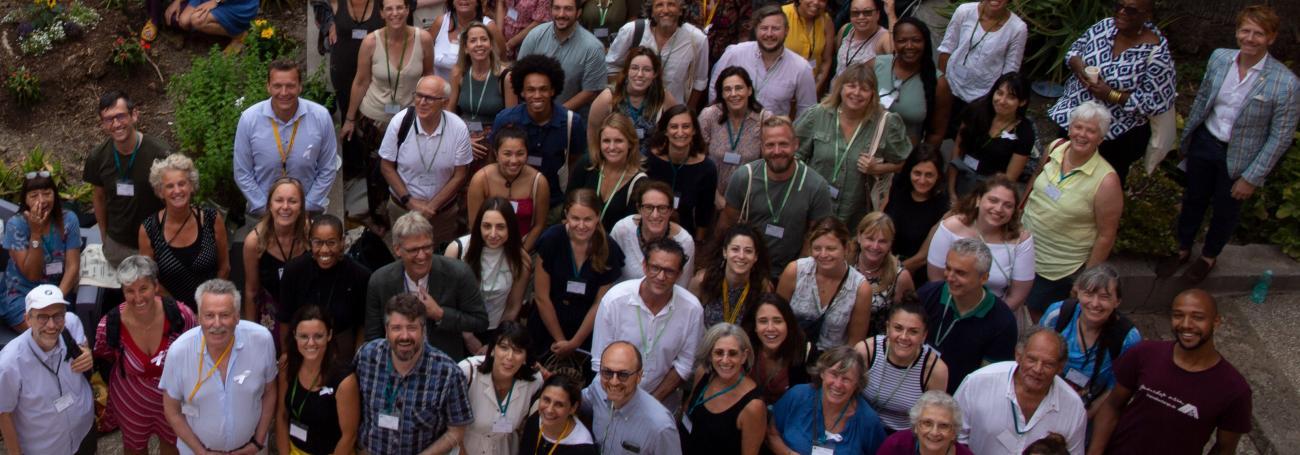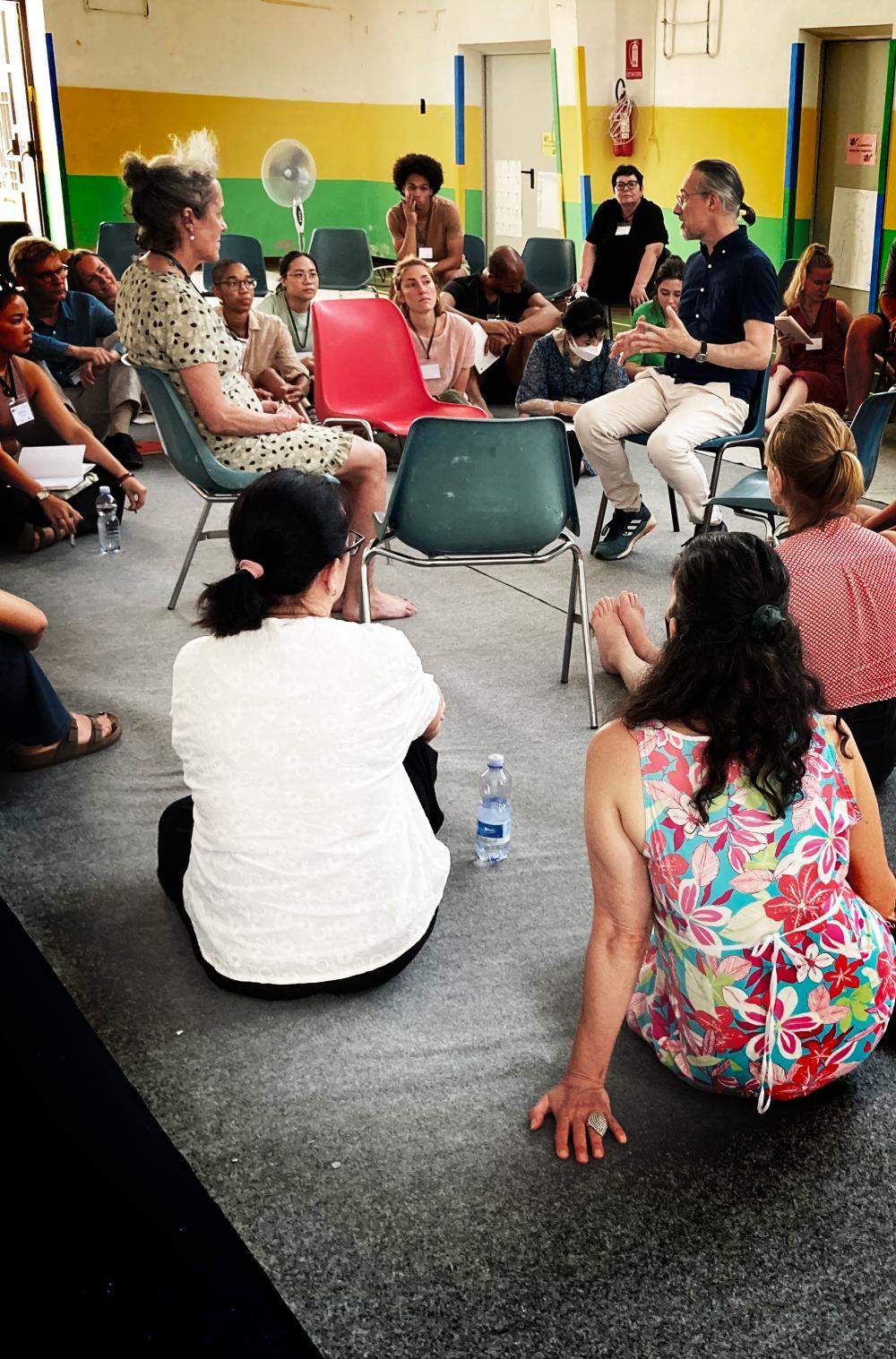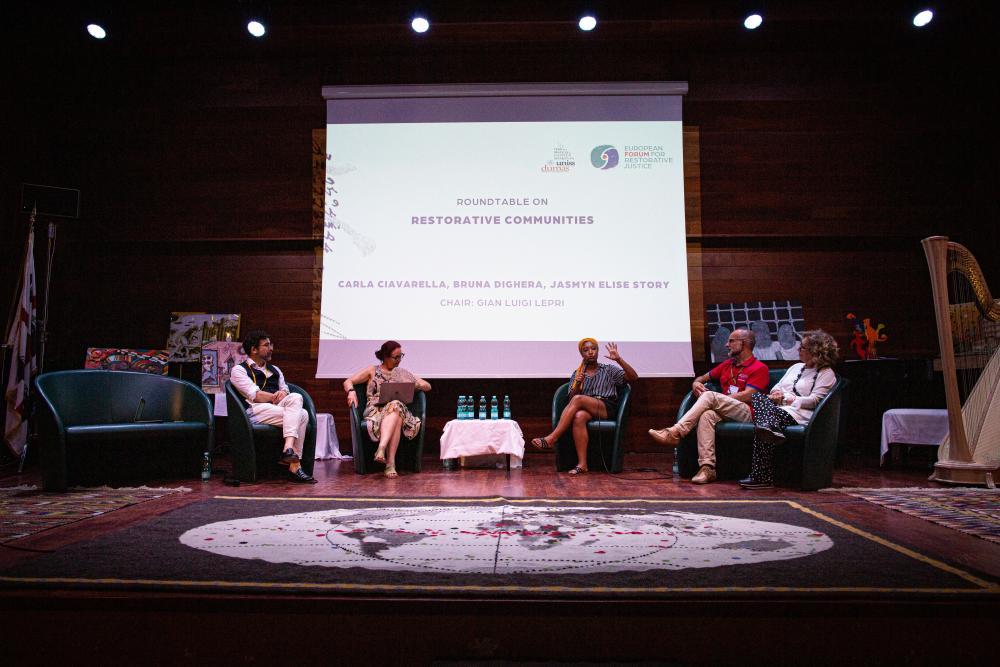Lucy
Platforming the voices of people who have been through restorative justice was a powerful and useful reminder to us professionals of the importance and potential of restorative justice.
Having survivors of terrorism speak about their own personal experiences and also of coming together to speak about their journeys was incredible. In addition, Ailbhe Griffith’s testimony was powerful and important, sharing her belief in the transformative nature of restorative justice and how it should be made available to all victims of crime, regardless of the type of crime. This chimes strongly with Why me?’s work in supporting individuals to speak out and tell their stories to change the world.
In addition to lived experience voices, the conference really emphasised the importance of international collaboration — especially in regards to policy. We were able to learn from other contexts about how to make system change, get support and confidence to make the argument for Restorative justice, and aim for global agreements which can then influence national decision-making. A prime example of this is the Council of Europe Venice Declaration which commits the UK Government to a national restorative justice action plan. Why me? have been campaigning for a UK national action plan on restorative justice since the last plan expired in 2018. We hope that this would make restorative justice accessible to all victims — which is our organisation’s core mission.
Sula
Through the training with Dominic, I was able to engage in some interesting conversations about the role of power and privilege in the restorative context. When it comes to accessing services, practitioners and key stakeholders need to understand the privilege of asking for help and physically coming to specific locations where services are placed. Asking for help is hard, especially asking services that might be perceived as not having your best interest at heart, or that might be associated with other services by whom you have previously been marginalised (police, probation etc.). Therefore, we must acknowledge those barriers to accessing services that are present before the process even starts, and make sure we can provide additional support if need be, as well as be flexible to the needs of the people with whom we are working.
Discussions about power, privilege, and race continued throughout the conference. During Jonathan Scharrer’s workshop, we talked about how the biases of discretionary decision makers (law enforcement, Youth Offending Teams and family services, prosecutors, judges) in the justice system continue to systematically marginalise community members at every stage of the criminal justice process before restorative justice is even offered. Looking at when restorative justice is offered and how it is offered to black people compared to their white counterparts highlighted the need to have effective monitoring and evaluation mechanisms in place to collect data in order to prevent restorative justice programs from replicating the same systemic harms as the traditional legal system.
Contributions to this discussion from some of the few black people present at the conference were key as we were able to provide valuable insights and contributions based on our own experiences and the creative lens through which we see the world.
For me, the conference emphasised the importance of checking our privilege. Placed in a so-called ‘post-colonial’ context where the majority of practitioners in this field (specifically in the UK) are white, checking our privilege is extremely important. What is it about the way we look or the way we speak that may perpetuate negative power dynamics that can further exacerbate feelings of oppression? In many cases, due to the lack of ethnic and linguistic diversity amongst staff in services, representative support isn’t always available. In these cases, of course, this issue should be addressed, but in the meantime, just being aware of this privilege and potential power dynamics allows you to play an active role in balancing these dynamics.




